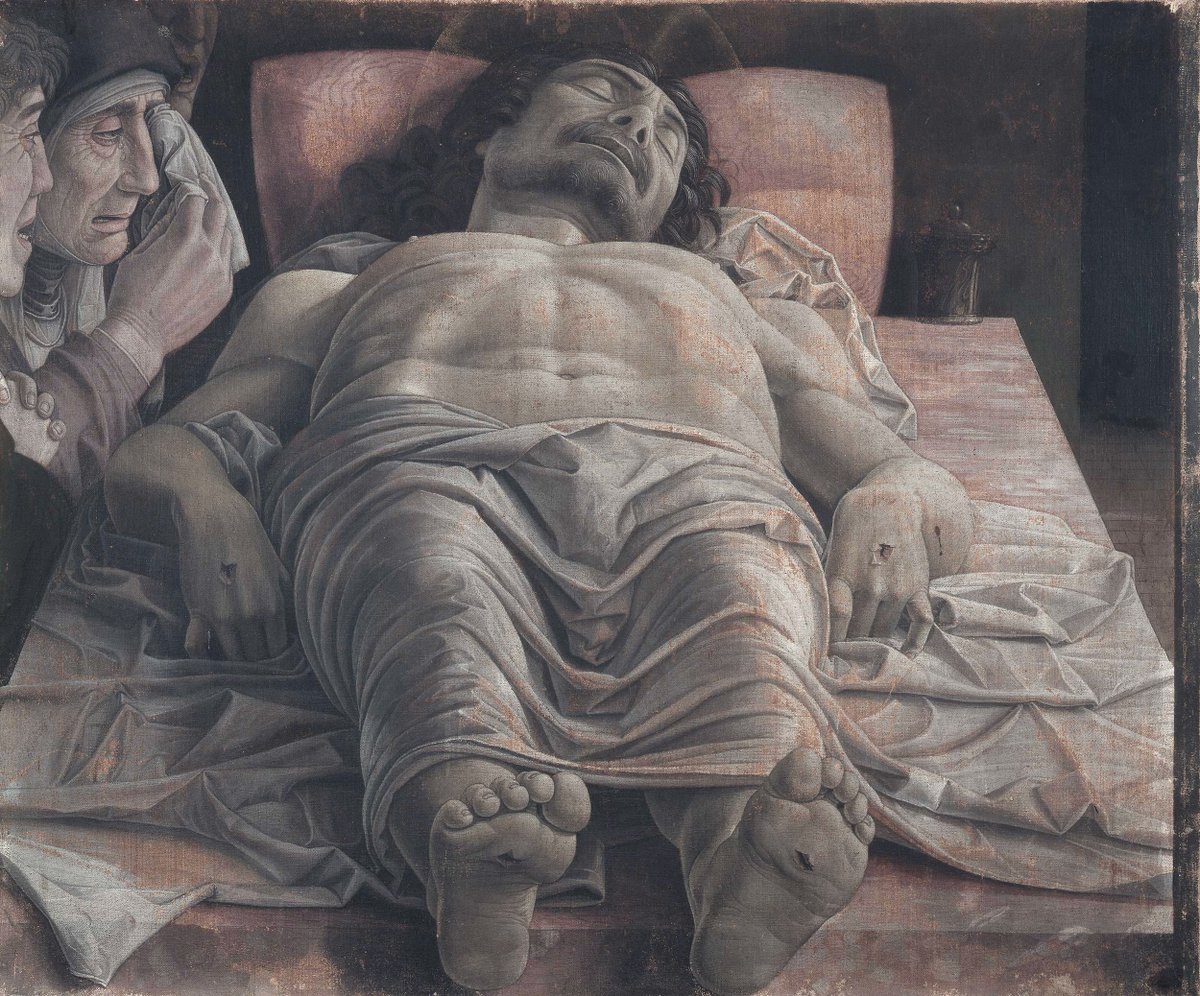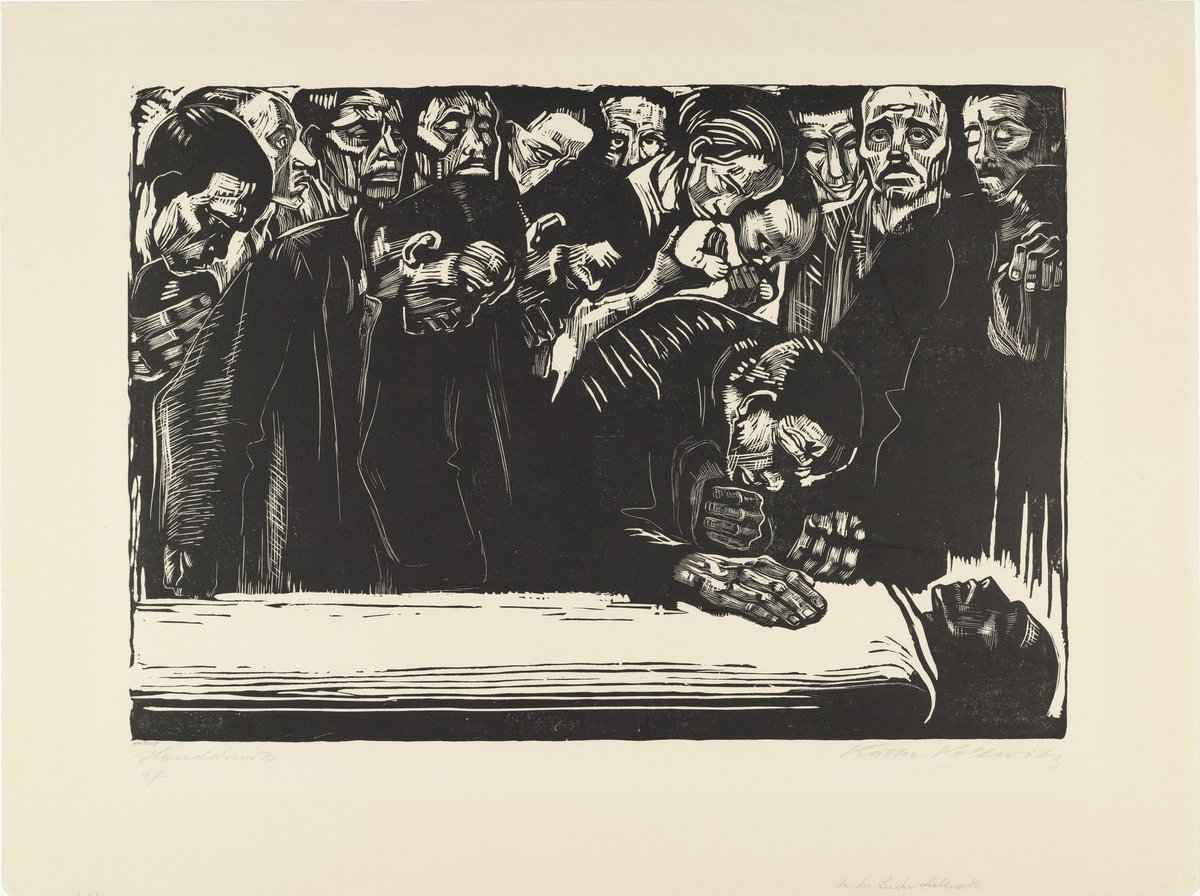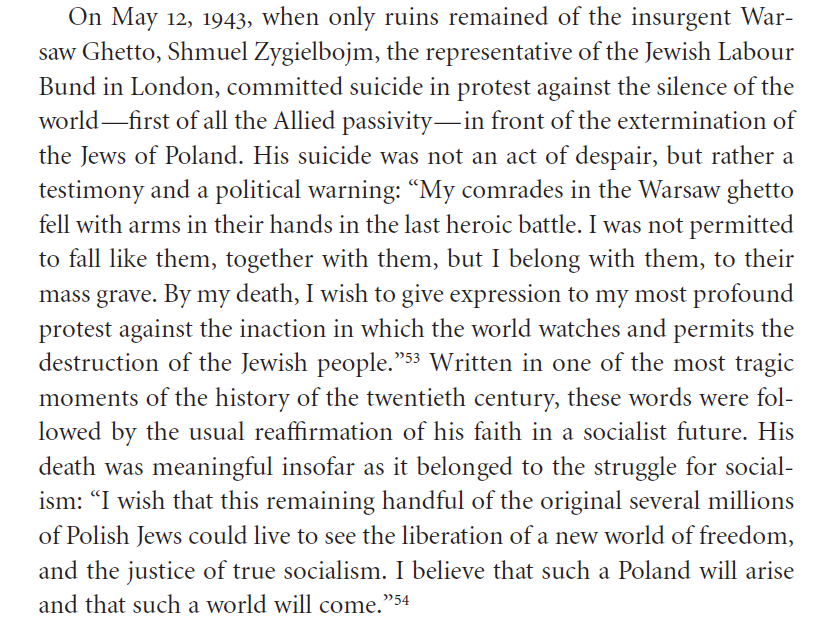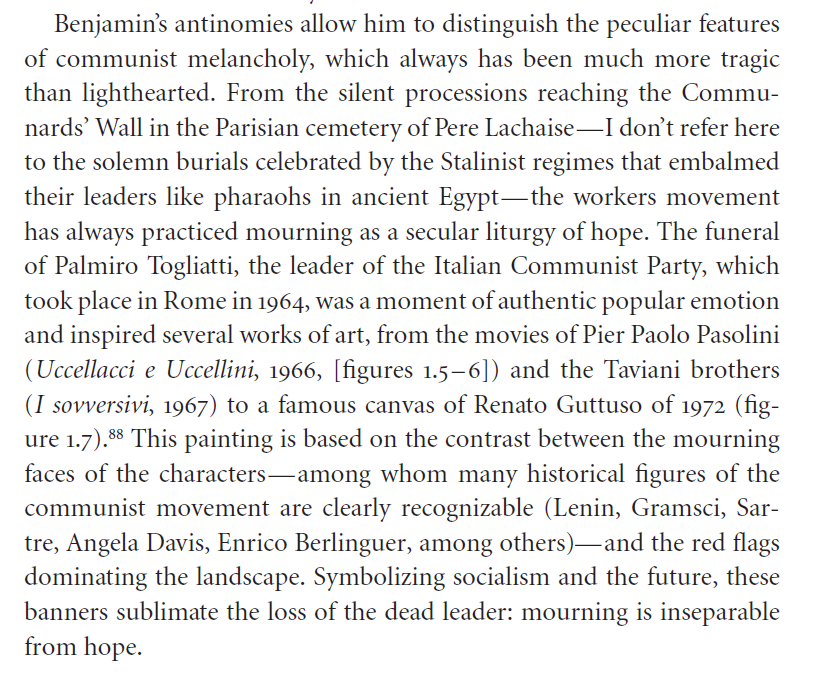Theory time?
In The Eighteenth Brumaire of Louis Bonaparte, Marx distinguishes between proletarian and bourgeoisie revolutions. The bourgeois & #39;run swiftly from success to success& #39; whilst the latter, socialist revolutions & #39;constantly interrupt themselves.& #39;
The socialist revolution is defeated but at the same time, can never be overwhelmed by that defeat, for as Marx put it, & #39;the social revolution could not take its poetry from the past but only from the future.& #39; Or, in other words, defeat is never definitive.
However, Marx never minimized the cost of defeat - the defeat of 1848 left the workers of the city of Paris incapable of acting for & #39;years and years..& #39;
After the fall of the Paris Commune in 1871, Marx wrote that "the soil out of which [socialism] grows is modern society. It cannot be stamped out by any amount of carnage. . . . Working men’s Paris, with its Commune, will be forever celebrated as the harbinger of a new society"
As Enzo Traverso points out the fall of the Paris Commune led to 35,000 people being killed and another 10,000 being deported - 1 in 30 Parisians! And this was followed by a widespread campaign to criminalise worker militancy throughout Europe.
And yet! Within three decades there were mass socialist parties existing in all European countries. Defeat is never definitive.
Revolutionary hope is never without melancholy. To quote Louise Michel: “the Commune, surrounded from every direction, had only death on its horizon. It could only be brave; and it was. And in dying, it opened wide the door to the future. That was its destiny.”
Remembering the defeats of the past is not a kind of impotent mourning but a vital means of communicating the hopeful political imaginaries of the past to fresh articulations.
Another example: Rosa Luxemburg writing in the face of a failed revolution in Berlin, abandoned by the social democrats and surrounded by hostile forces she both affirmed the failures of the past and the hope of a victorious future.
"The whole road of socialism—so far as revolutionary struggles are concerned— is paved with nothing but thunderous defeats. Yet, at the same time, history marches inexorably, step by step, toward final victory!" #RosaLuxemburg
The final part of the Luxemberg quote: "Today, as we
advance into the final battle of the proletarian class war, we stand on the foundation of those very defeats; and we cannot do without any of them, because each one contributes to our strength and understanding."
advance into the final battle of the proletarian class war, we stand on the foundation of those very defeats; and we cannot do without any of them, because each one contributes to our strength and understanding."
We still stand on those defeats - and more besides - and we can take them as the proof of the impossibility of a better world or we can, like Luxemburg, see them as links in the chain of historical defeat which brings victory closer.
Traverso points out that the idea of the "glorious defeat" which only reinforces the belief in the final triumph of socialism finds many articulations in Latin America.
Think of Che Guevara in 1967 admitting the failure of the movement in Bolivia but holding fast to the "immortality" of the revolution...
Salvador Allende, facing a military coup and his own death could still say that the day was coming when the "great avenues will open again where free men will walk to build a better society..."
So how to read this leftist melancholy? For Wendy Brown it is a & #39;conservative tendency& #39; preventing us from finding a new & #39;critical and visionary spirit,& #39; but Traverso argues this apparent conservatism is also a resistance against demission and betrayal.
And here Traverso turns to Walter Benjamin, to recuperate the positive idea of a leftist melancholy...
What does this leftist melancholy look like? For Traverso, Benjamin& #39;s melancholy is a phenomenological approach to objects and images embracing "dead objects in its contemplation, in order to redeem them..."
Worth quoting Benjamin at length here, on the function of the melancholic recollection of the past leading to a revolutionary hope...
Melancholy itself is not the issue but rather depoliticised melancholy, shorn of its critical potentialities....
(I& #39;ll stop there. I know its been a while since I did one of these long theory threads so I will try and do some more of these soon!)

 Read on Twitter
Read on Twitter







